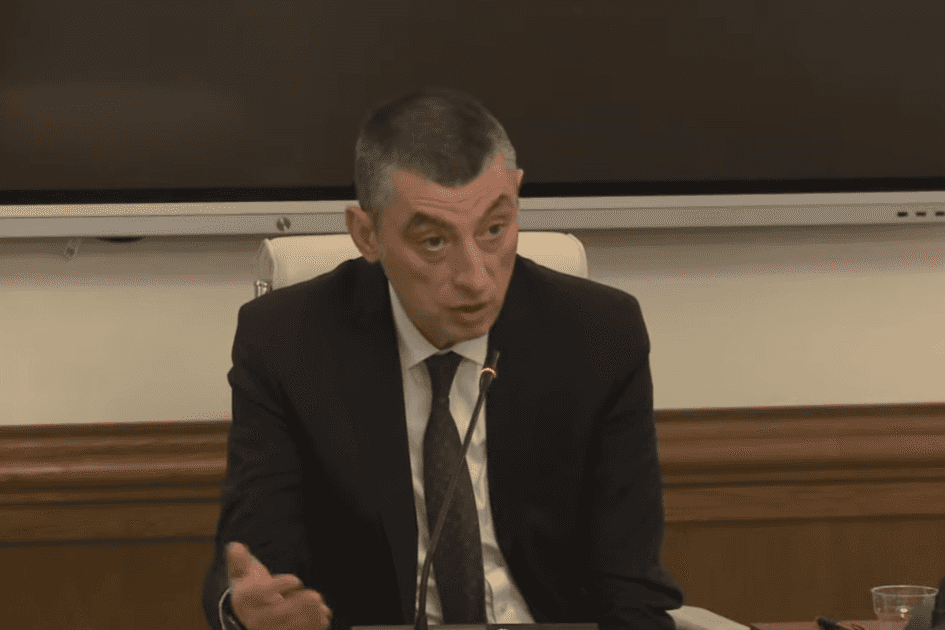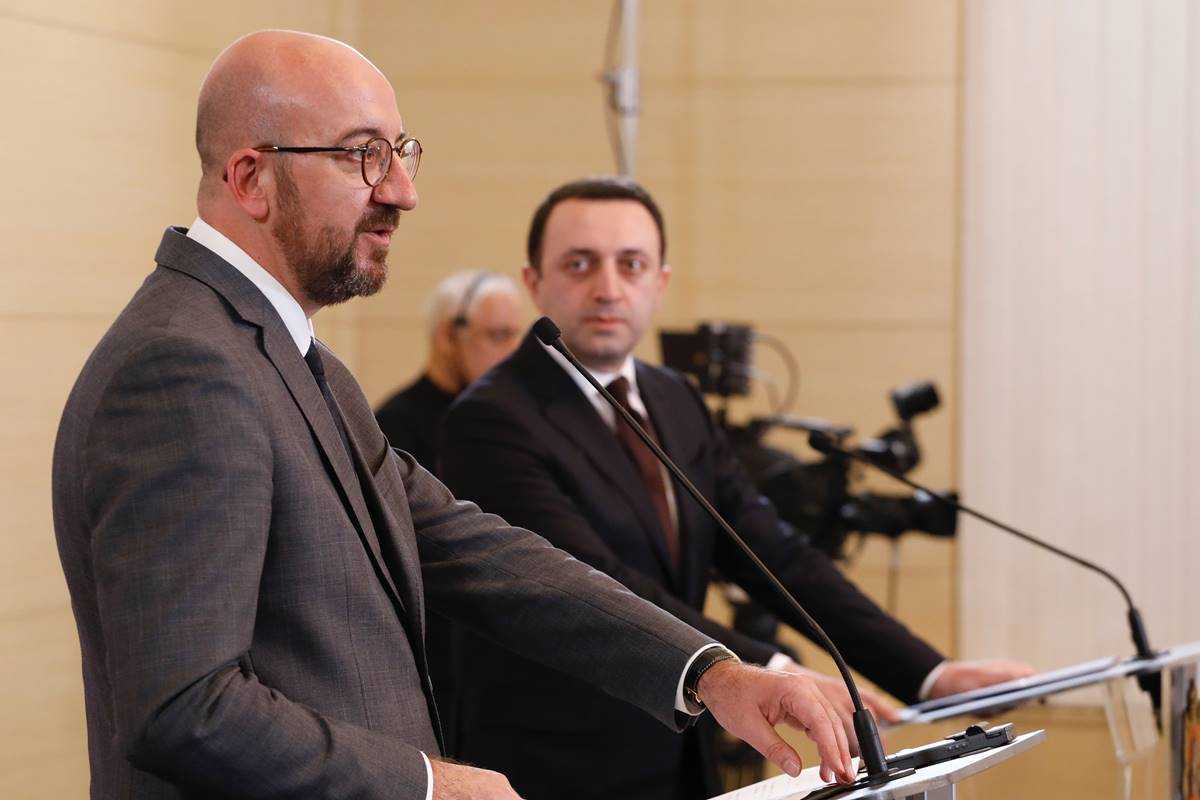
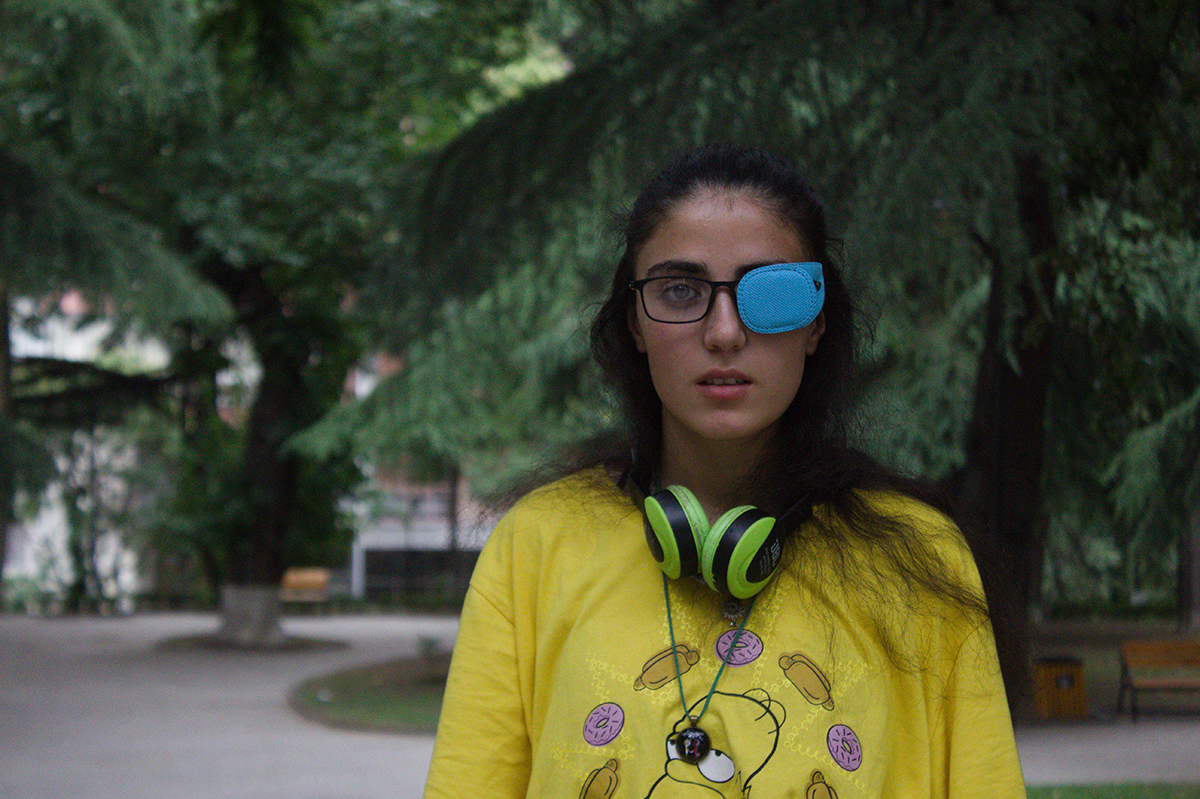
Mako Gomuri, 20, a student and a supermarket cashier, is one of several people to lose an eye on 20 June during anti-Russia protests in Tbilisi. As the situation was escalating, she spent the entire day working, disconnected from the events unfolding outside.
 This is a partner post that originally appeared on ON.ge on 25 July 2019.
This is a partner post that originally appeared on ON.ge on 25 July 2019.
‘I left work around midnight. I work on Marjanishvili Street, but I didn’t hear anything from there. When we closed at night and I took out my phone, only then did I see messages from a few of my friends who were at the rally.’
‘I hadn’t planned to go to the rally because I wasn’t socially active or politically involved in the general events happening in the country. When I went down into the Marjanishvili metro station, people were saying that there was some kind of confrontation going on and that they [the police] were using tear gas. Both of my sisters were there. I decided that going home, where I would be anxious alone, wasn’t a good idea, so I went to the rally to collect my sisters and friends.’
‘When I reached the parliament, the dispersal of protesters had already started. I saw people lying on the ground near the Liberty Square metro station. It was a terrible scene. Some couldn’t breathe, they were poisoned. Some were pouring water on others.’
[Read on OC Media: Thousands clash with police as protesters try to storm Georgian Parliament]
‘I met my sister at the entrance of the metro, then we went to the first gymnasium where my friends and my other sister were sitting. The majority of people had left and the confrontation seemed to be over. We sat in peace and I told them about my day.’
‘Soon after, though, the shooting started again. I saw a big group of special police units moving in, so I headed back in the direction of Kashveti Church.’
‘A man fell over and some people stopped to help him. You know that kind of premonition you have before something bad happens? I had one then. I froze, thinking how something bad could have happened to us.’
‘Suddenly, a bullet hit me. I only yelled out once, you can hear it in the video. I didn’t fall. I lowered myself to the ground and waited for someone to help me get to the ambulance, but the ambulance was far away.’
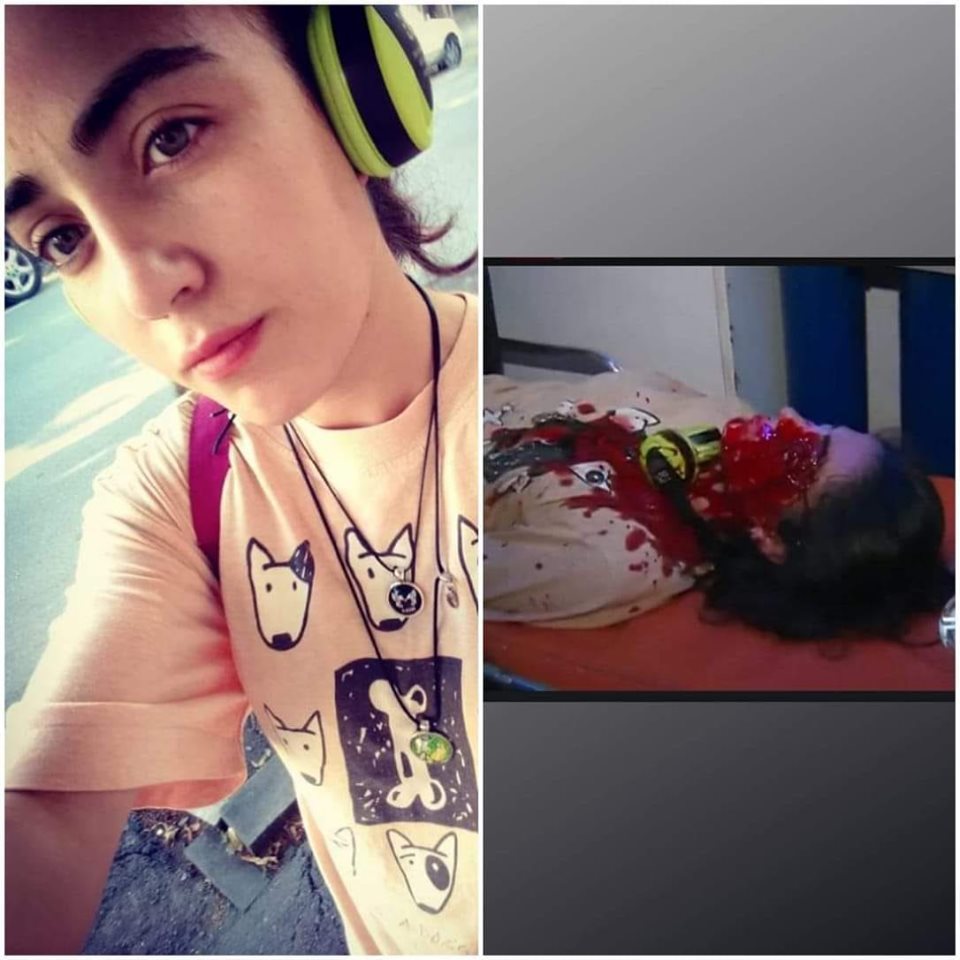
‘I felt pain for just a few seconds, then nothing. I was conscious the whole way to the hospital and I could hear everything that was happening around me.’
‘I never had an opportunity to thank the people who helped get me to the ambulance. I remember the moment that one of them grabbed me, then another, and then a third. To me, they are heroes.’
‘I’m angry that my last memories are so bad’
‘When I came to my senses after surgery, my older sister told me about my eye. I wanted to yell, but I just calmly accepted it. As soon as that bullet hit me and things went dark, I realised that I wouldn’t have an eye anymore. I never had any hope that they would save it.’
‘I’m angry that my last memories from when I still had both eyes are so bad. I could have lost my eye another way. Not at a rally, but maybe while hiking. Then at least I’d have a nice memory.’
‘Although I was mad and upset, I knew that crying and depression weren’t worth it. I knew that if I gave in to the stress, depressed and overthinking, it would also affect the people around me. What would happen around me, how my friends and family members would feel, all depended on me.’
‘I lied to my mother about being at the rally’
‘I grew up in Dusheti; my parents still live there. My mother didn’t know I was going to the rally. When I left work that day, I told her I was going home.’
‘You know how parents have an instinct for when their children are in danger? She called me 50 times that day to make sure I was home safe.’
‘The day after, my brother and sister went to tell our parents that I had lost an eye. My mother asked them if I was alive. Later, I was able to calm her down and tell her that she had nothing to worry about. They support me with everything I need now.’
‘Giorgi [a guard at Rustavi 2] also lost his left eye at the rally. Like mine, they couldn’t save it. When he and his wife came to visit me, we tried to talk about positive things, to not think about anything bad. When there is so much positivity coming from the people around you — attention, warmth, positive emotions — your own perspective improves and you can get rid of the negative.’
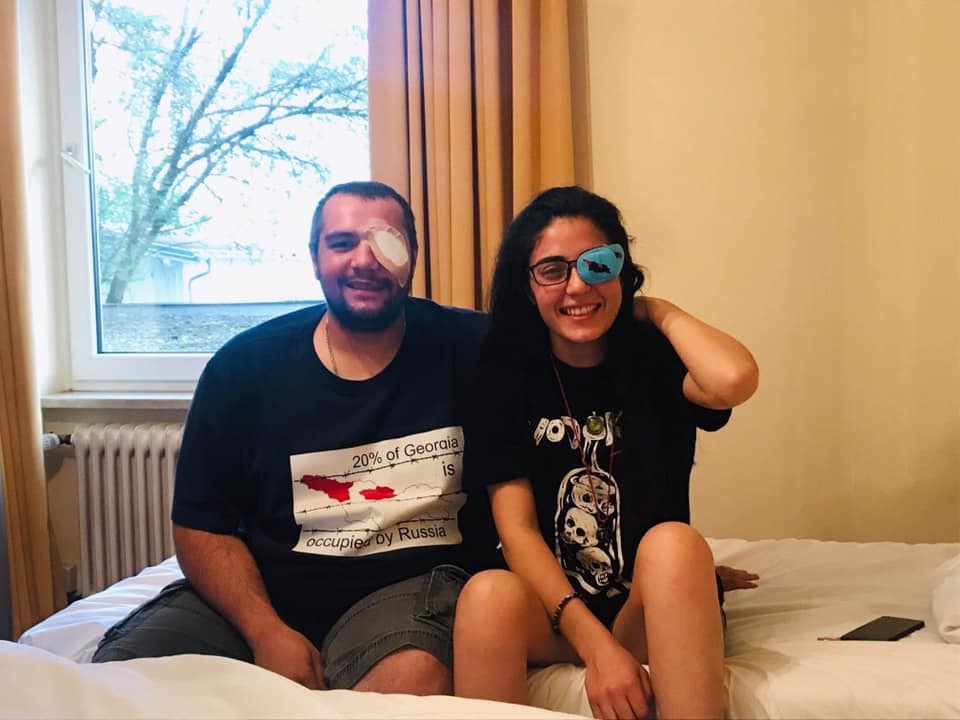
‘Giorgi is a very good person, very emotional and kind. I feel sorry that such a nice person had to go through something like this. We prefer to talk about the future, how everything will improve and how we’ll both return to the normal rhythm of life.’
‘I still haven’t fully realised how much I lost’
‘The process of acceptance was difficult. I still haven’t fully realised how much I lost. Maybe for someone else, it would be nothing or just something very small, but for me, it’s a lot. My eyes were the only thing I liked about my appearance.’
‘If someone asks me now what it feels like to see with both eyes, I can’t remember. I can only see from my right eye. My left eye is lost.’
‘What I hate the most is the injustice of it. I was always reprimanded for getting involved; whenever I saw injustice, when I saw someone being harrassed, I would always get involved. The fact that I was there peacefully and they hit me with a bullet in the eye — this is injustice and I cannot tolerate it.’
‘I had nightmares about being shot’
‘Going back to the protest a month after the incident was hard. I had wanted to go back to the protests before. I tried to go, and got as far as Liberty Square, but turned around. I’ve overcome my fear now, but at first, it was difficult.’
‘I couldn’t sleep well for a while. I had nightmares about being shot and beaten. I would cover my face with my hands in the street. It was like a reflex to the fear that something like that would happen again.’
‘I’ve overcome my fear now. If it’s necessary, if the country needs it, I will go out again.’
‘My peers are fighting to punish the guilty’
‘I don’t care who is in the government. I support the healthy expression of opinions and the generation standing in front of the parliament right now.’
‘My peers are fighting to punish the guilty. The person who shot me in the eye is free while people who were at the rally were arrested — I believe that this is an injustice. If they fight against it, I will support them.’
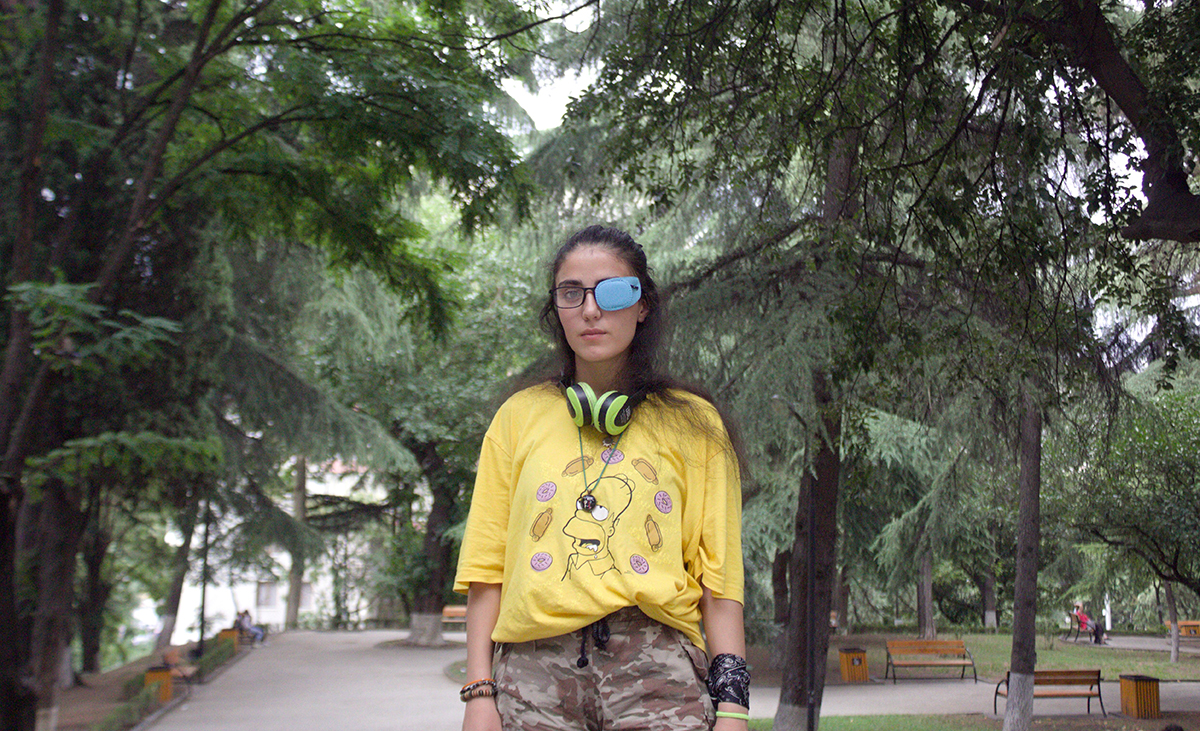
[Read on OC Media: 5 violations by police during the Tbilisi clash]
‘It’s important that they don’t lose the impetus for change. We stand there for a better future for you, me, my sisters, someone’s children. It’s just awful that someone has to die or lose an eye for us to unite and fight for a common idea.’
‘If I were to go out into the street and lose my phone, I’d feel sorry that the loss was so purposeless. But if I were to give my phone to someone as a gift, I wouldn’t feel sorry about it because I’d know that I did something nice. It’s all the same: if my eye, Giorgi’s eye, or someone else’s eye could be the last, I could say that it wasn’t in vain. If all these losses are in vain then I’ll feel sorry about many things that happened on 20 June.’
‘I have a question: why?’
‘When I was in the hospital, I received a lot of positive attention and support. But some people were quite negative.’
‘Why would someone write negative comments? I don’t understand. You see these horrible photos, you see people lost their eyes. I think the people who write them don’t have hearts or feelings.’
‘I would never wish bad things on anyone, not even on the person who shot me. I went through a lot of pain. Some people told me they wouldn’t be able to handle so much if they had been in my shoes. What Giorgi and I had to go through, I really don’t wish on anyone.’
‘It’s not hard for me to look at the photos of myself injured and bloody, but they make me angry. When you get shot in an empty street, of course, you get angry.’
‘The main thing for me is that I survived’
‘I’m now ready to fight. I wasn’t like this before. I have more motivation and power now.’
‘Despite everything, I will continue to do what I love. The most important thing for me is that I survived. I will continue reading and riding horses; I will learn to drive. I’ve already tried it and I think I can do it.’
‘I have a lot of plans for the future. I want to learn to play the drums, go hiking, and continue studying, but first I need to finish my medical treatment.’
‘What’s important for me is to get rid of these glasses. I don’t like them, I feel very insecure wearing them.’
‘I go to the doctor once a week. My upper eyelid should heal well. In September, I’ll go to Germany to finally get a prosthetic eye. Then in six months, I’ll have plastic surgery on my eye and eyebrow. But it still won’t be over, because, in a few years I’ll need to change the prosthesis as the muscles will have adjusted.’
‘The only demand I have is for these things not to happen again, for people not to get injured in the future.’
‘At the time I was shot, if there really were people trying to break into the parliament, then this is what they had to prevent. They didn’t have to shoot an innocent girl, 50 metres away, who was trying to help others and wanted to go home.’
